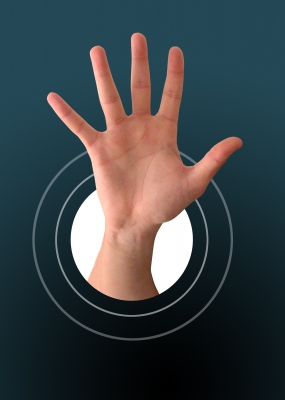5 Tips for Attaining a Special Needs Diagnosis, Part 2

Yesterday, guest blogger April Brownlee, gave parents of kids with special needs tips about how they can advocate while waiting for the professionals to make a definitive diagnosis. Today, she’s back with three more tips and a wrap up.
5 Tips for Attaining a Special Needs Diagnosis, Part 2
Tip #3 for Attaining a Diagnosis: Never Accept “I don’t know” as an Answer
Recently, I attended a routine appointment with a family member who is searching for a diagnosis. The PA we were assigned said something that I think is a cop out and an injustice to any patient. He said, “We may never know what this is.” He then went on to explain how the patient had seen several specialists already, people “much smarter” than him. His point was if they couldn’t help then what could he offer? To that I say ALL patients are owed more. All patients are owed every medical provider’s due diligence. If this one couldn’t help, then he owes it to the patient to either keep looking or find someone who will. But to say, “I don’t know…” and leave it at that is disheartening, discouraging, and wrong. Back before my child was diagnosed, our primary care pediatrician at the time never really had answers to offer us either. But what I appreciated about him, and what kept me coming back, was that he never said he didn’t know. He never tried to make excuses. He would just very honestly say “She is a challenging case.” That told me he saw himself as being challenged, not giving up.
Tip #4 for Attaining a Diagnosis: Don’t be Afraid to Fire a Doctor
This follows right along with tip number three. If your doctor gives up on you, if your doctor won’t listen to you, if your doctor makes you feel silly or stupid, don’t be afraid to say, “You’re fired.” It’s so easy to be intimidated by a doctor. But you really are in the driver’s seat. You have to be. Nobody sails through today’s medical system without taking the reins at some point. Don’t underestimate yourself.
Tip #5 for Attaining a Diagnosis: Find a Doctor Willing to Look at your Child as a Whole Person and Not Just a Segment
When you begin seeing lots of doctors, and especially lots of specialists, it’s easy to get knocked off course. Specialists, while experts in their specialty area and a very necessary part of the diagnostic process, tend to look at a patient as a segment. They want to know how your symptoms fit into their specialty area. By doing so, they can miss important pieces of the puzzle. Is one symptom and one diagnosis masking a larger one? Are several symptoms that apply to a specialty area indicative of a disorder within that specialty or, when put together with other, broader symptoms, do they paint a different picture?
Doctors who use a good mixture of traditional and eastern medicine are often good choices because they think outside the box and are a little more open to trying alternative things. They also tend to be more proactive.
I have been known to take my daughter to our current pediatrician just because I feel like she is not herself. And guess what? They don’t laugh at me or look at me like I have three eyeballs. They take it seriously because they know me, and this particular physician has vast experience with special needs kids. So when I come in, even if I can’t articulate what it is about my daughter that is “off” this doctor doesn’t need anything more than my concern that to take it seriously.
What Have You Learned While Waiting?
Have you been in April’s shoes waiting for a diagnosis? What advocacy tips did you learn during the wait? Leave a comment below to share your tips.
Five Tips for Attaining a Special Needs Diagnosis, Part 1
Do you like what you see at DifferentDream.com? You can receive more great content by subscribing to the quarterly Different Dream newsletter and signing up for the daily RSS feed delivered to your email inbox. You can sign up for the first in the pop-up box and the second at the bottom of this page.
Photo Credit: www.freedigitalphotos.net
Subscribe for Updates from Jolene
Related Posts
The Lessons I Learned while Raising a Child with EA/TEF
Jolene Philo reflects on a lifetime of lessons learned while raising a child with EA/TEF and shares the insights she’s won.
Looking Back at Your Child’s EA/TEF Journey
Looking back at your child’s EA/TEF journey can give parents a new perspective about past events. Guest blogger Maggi Gale shares how her look back clearly showed her how God was with their family during their daughter’s very unusual first weeks of life in 2002. Three...
How Do I Let Go of My Adult EA/TEF Child?
Valeria Conshafter explores the question “How do I let go of my adult EA/TEF child?” for EA/TEF Awareness Month.






0 Comments